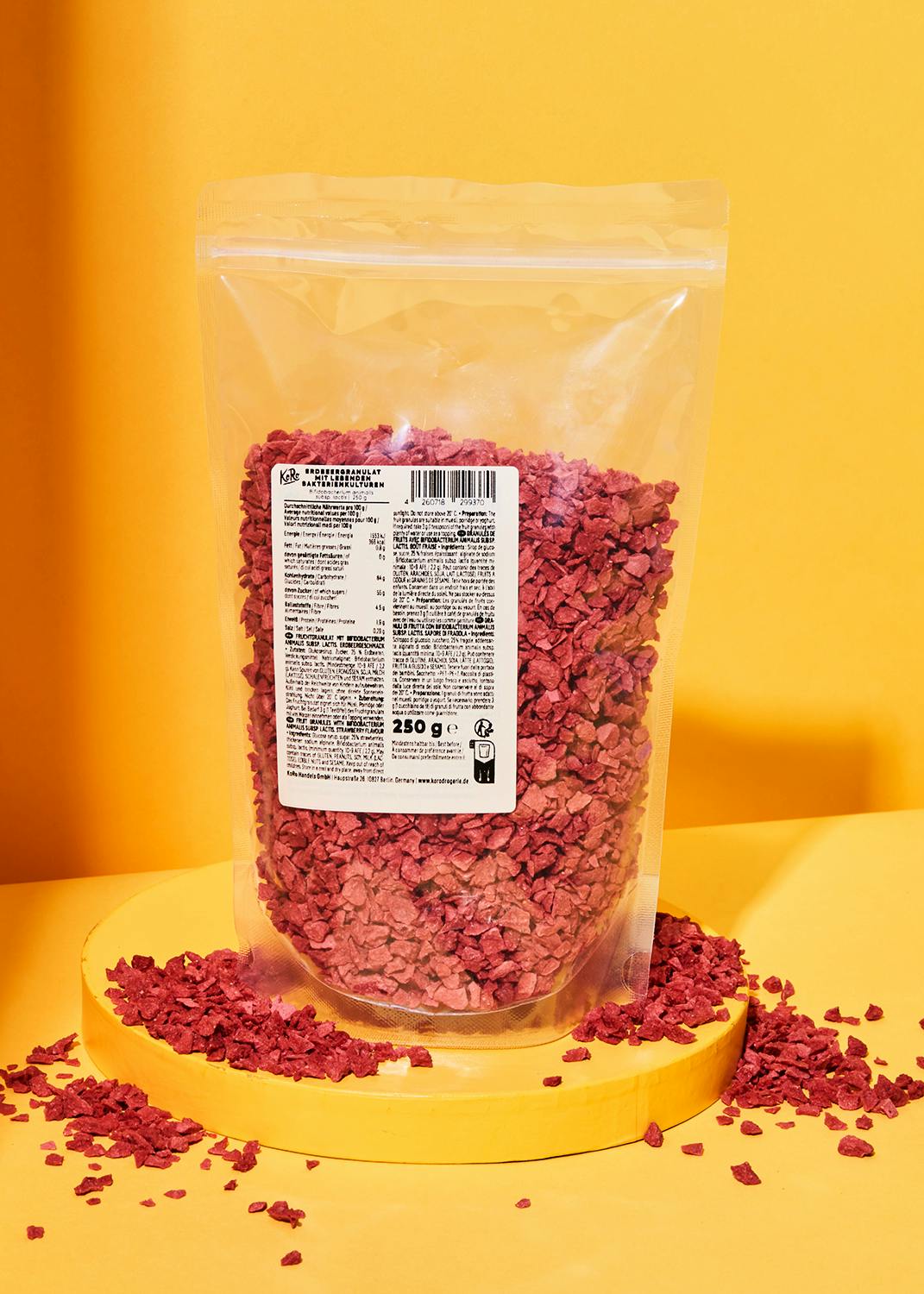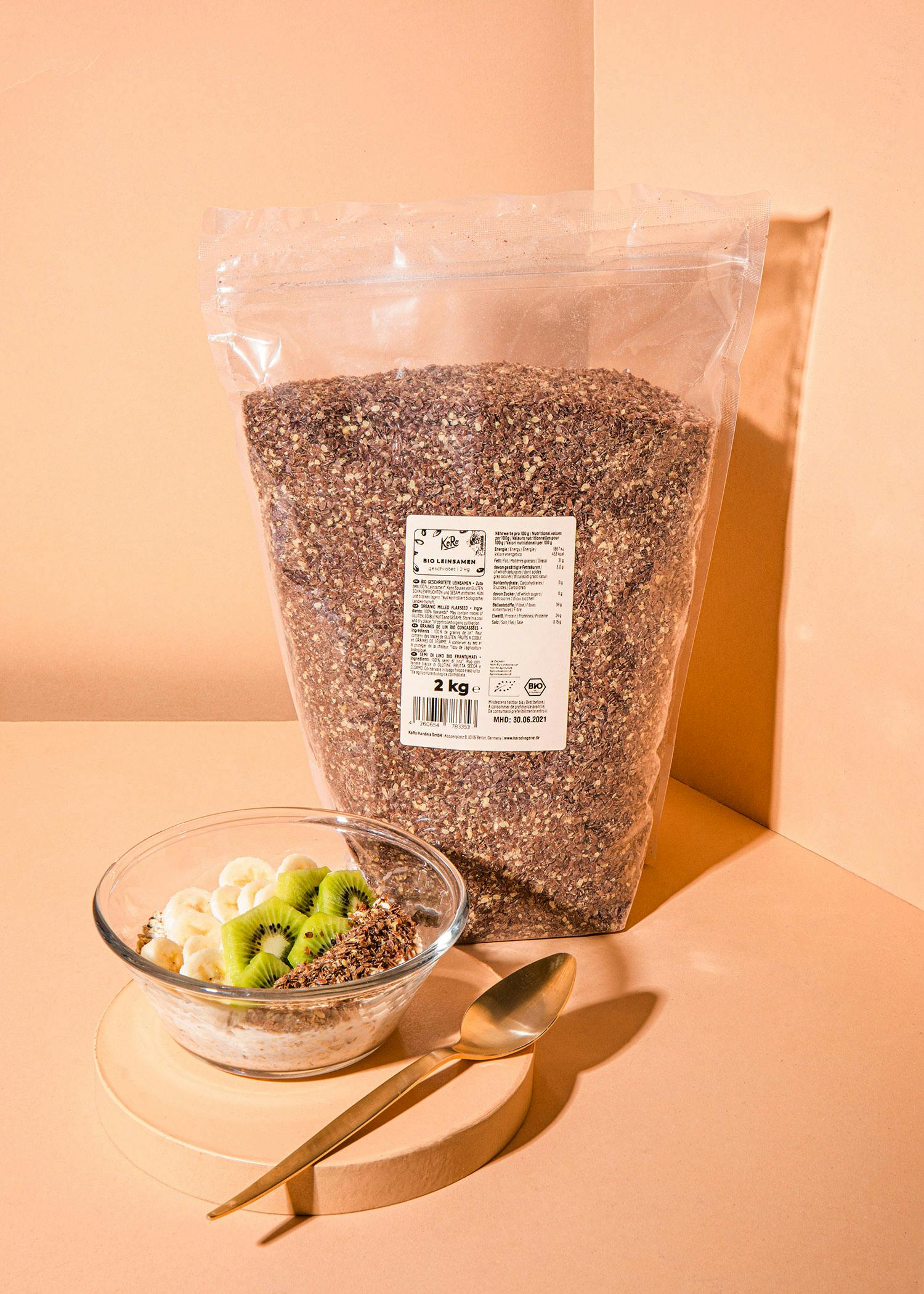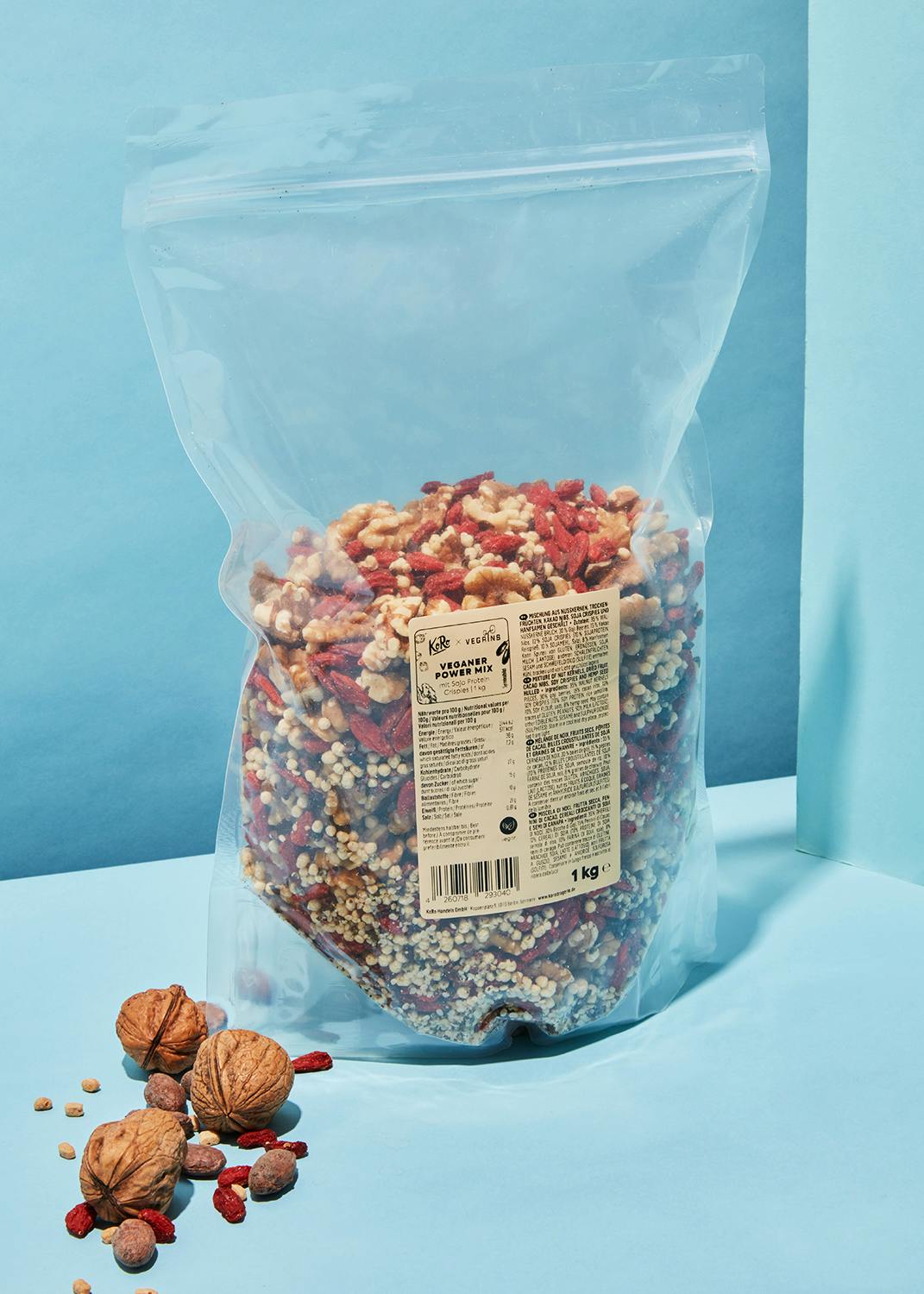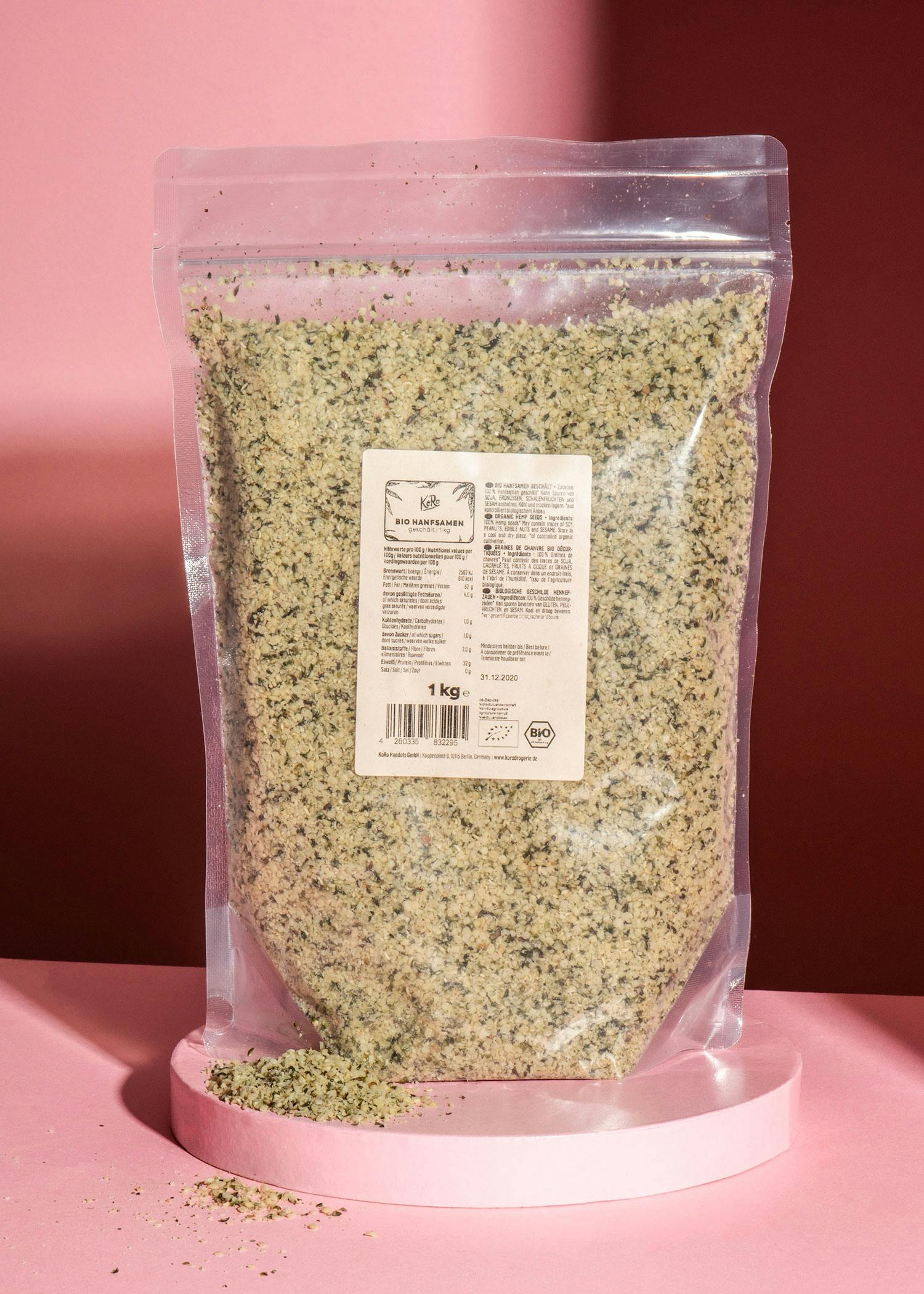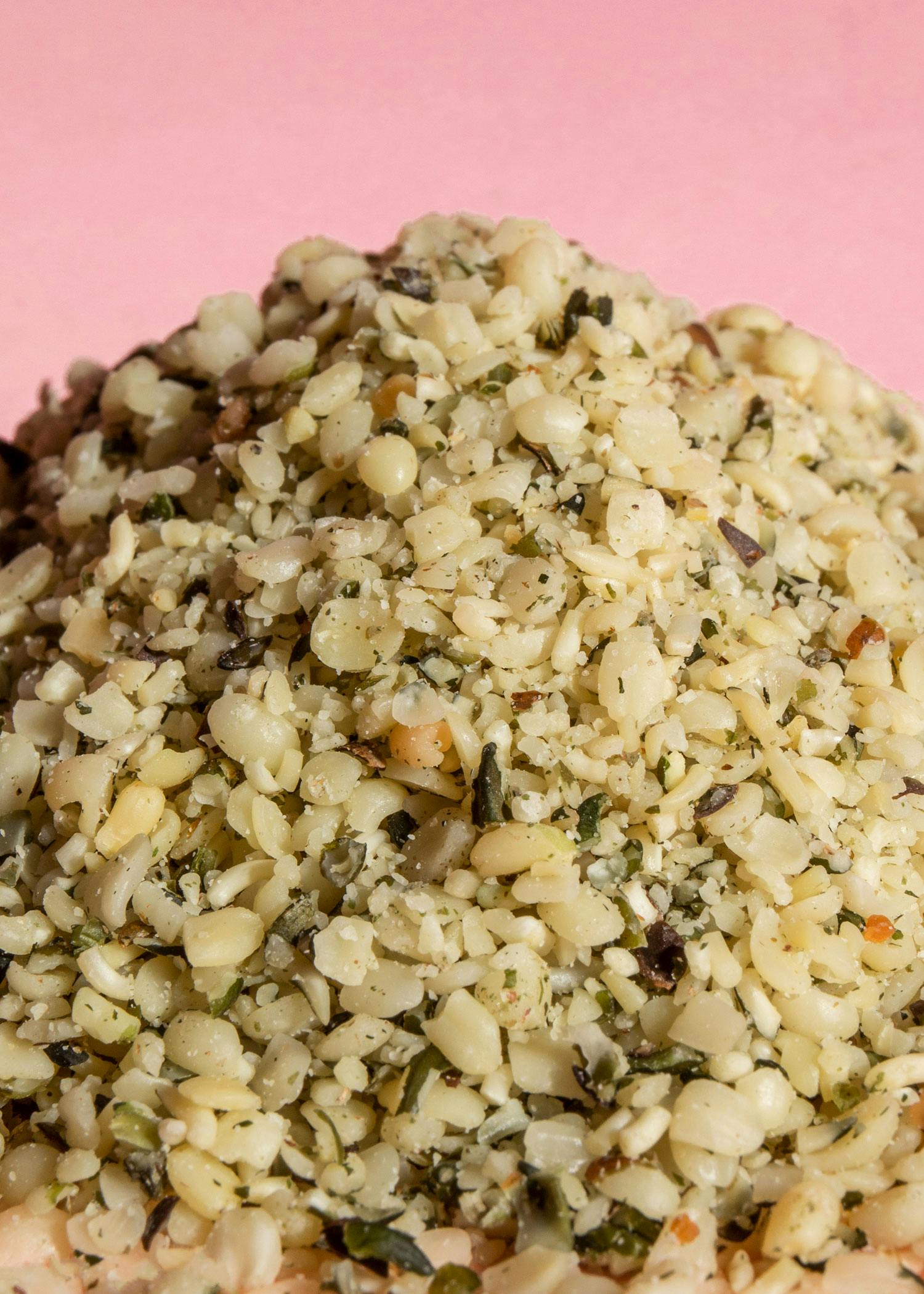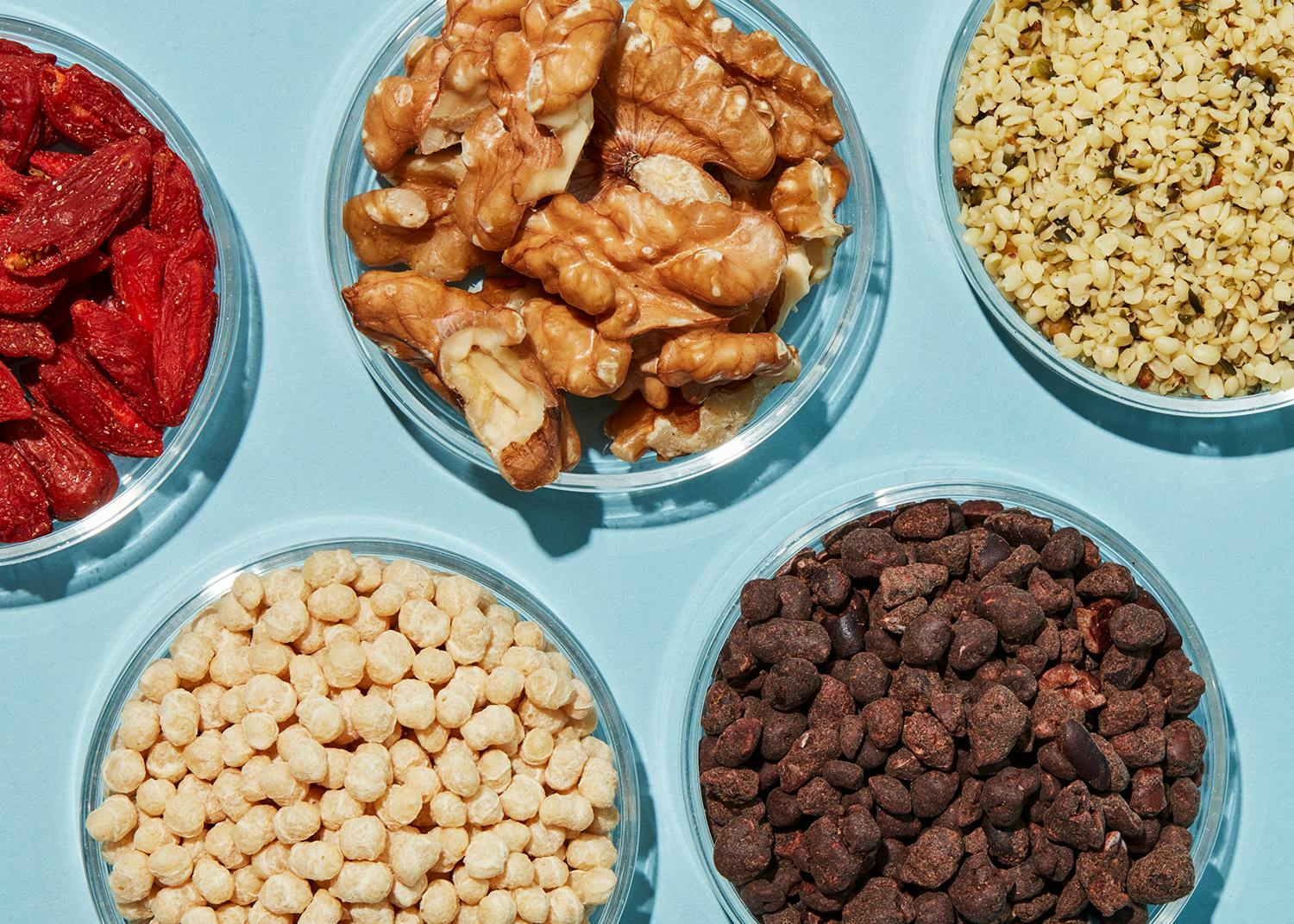
The community of intestinal bacteria
The intestinal microbiome is a complex ecosystem. The crazy thing is that each of us has a very individual ecosystem of bacteria, viruses and fungi in our gut. And just like forests or lakes, our gut microbiome is constantly changing. Especially in the first years of life, germs from the environment and breast milk have a major influence on our bacterial diversity. However, even in adulthood, the bacteria can be quite disrupted or rebalanced by diet, stress, exercise or the use of antibiotics.
Gut bacteria: good or bad?
Many people are immediately disgusted by bacteria and fear illness. But don't worry! Bacteria in the gut are actually a good thing: they keep the intestinal barrier healthy, interact with the immune system, synthesize hormones and vitamins and even break down toxins and drugs. However, there are also "bad", so-called pathogenic bacteria in the gut. These are normally present in such low concentrations that they do not cause any harm. However, as a result of a poor diet or too much stress, the intestinal microbiome can become unbalanced and the pathogenic bacteria multiply. The good bacteria are then still there, but simply can no longer compete with the pathogenic bacteria. And then the bacteria in the gut are suddenly no longer as good, as is the case with (chronic) inflammatory bowel disease, for example. Incidentally, flatulence can also be a sign of imbalance. However, only if you have to fart excessively often or feel bloated after every meal. A fart here and there - even if it doesn't smell of lavender - is completely normal!
Like a second brain
Everyone knows it: the good old gut feeling. Sometimes we feel sick to our stomach, sometimes we have butterflies or an excited tingling in our stomach. The feelings are proverbial, but can also be felt physically. But why is this actually the case? In 2016, two research teams discovered that gut bacteria interact with the brain. There is a kind of highway - the vagus nerve - via which the gut and brain constantly exchange the latest gossip. But the gut and brain are also connected via the immune system and other pathways. This large communication network is also known as the microbiota-gut-brain axis. A complicated word - we know! But in the end it describes exactly what it is: In the gut, there is the microbiome and these many tiny bacteria communicate quite diligently with the brain to be the first to know all the gossip. In return, the brain is presented with the latest developments in the gut.
Gut microbiome and depression
The fascinating thing: Through this axis, the microbiome could potentially be involved in the development of depression and other mental illnesses. It has been shown that the bacterial community in people with depression is often somewhat out of balance. Many researchers have therefore rightly asked themselves whether the gut microbiome could simply be brought back into balance in order to cure depression. Unfortunately, it's not that simple and research is still in its infancy. Remember: it was only in 2016 that it was discovered that there is a connection between the gut and the brain and now research is already being carried out into whether depression can be cured in the gut - that's really crazy!
But there is good news: some studies have already shown an improvement in depressive symptoms when probiotics - i.e. live bacterial cultures - were taken in addition to antidepressants. However, it has not yet been conclusively clarified which bacteria should be taken and in what quantity. And: probiotics must be taken on a permanent basis, as the bacteria usually do not colonize the intestines.
You also feed your gut bacteria with your diet
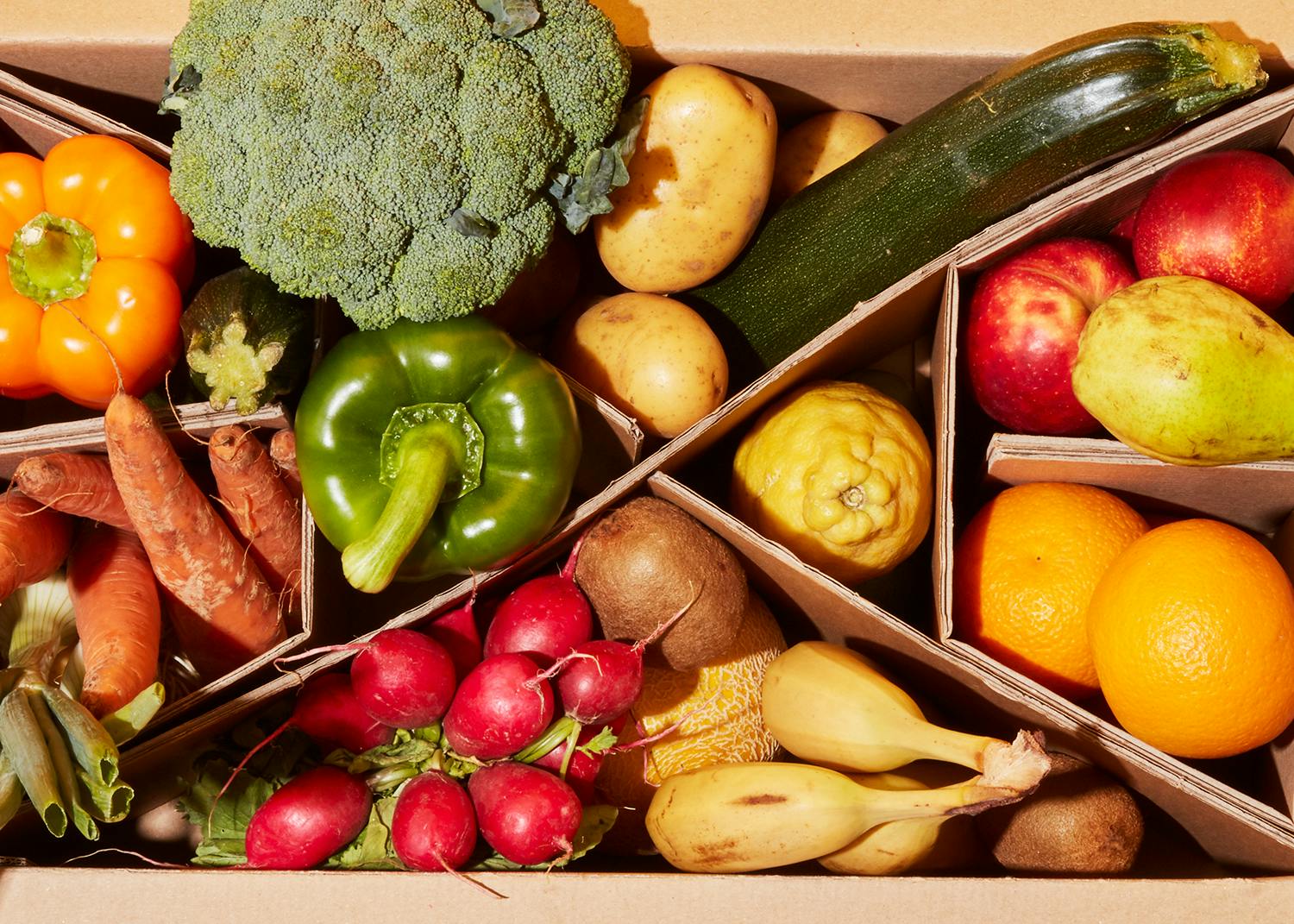
However, what has a lasting effect - unfortunately both positive and negative - is your diet. Just like us humans, our gut bacteria have certain favorite foods and others that they prefer to avoid. But: supply also determines demand in the gut! So if you regularly eat a lot of fiber - props to you! - the bacteria that like to eat fiber will feel right at home and multiply. Unfortunately, this is also how it works with bacteria whose favorite food is the remains of a frozen pizza. In our modern world, ready meals with lots of fat and sugary soft drinks are becoming an increasingly important part of our diet, so bacteria are also getting used to the regular offerings.
How to: Feed your gut bacteria properly
But what's the best way to eat now? You guessed it: less fast food is definitely good for your gut bacteria. Studies have shown that people who eat a Mediterranean diet are less likely to suffer from depression. The diet can therefore have a great preventative effect! You are probably right to classify the word Mediterranean as Italian: A varied plant-based base of vegetables, fruit, nuts, whole grains and vegetable oils is joined by lean protein sources and fish. However, vegetarian and vegan lifestyles can also optimally support the intestinal bacteria, provided you make sure that you have an adequate supply of all nutrients.
As a general rule, fiber is definitely not ballast, but feeds our good gut bacteria. Fiber can also be supplemented in isolated form as prebiotics, but whole foods always contain other ingredients as well. For example, some plant-based foods such as cereals, berries, cocoa or soy also contain polyphenols - a group of secondary plant substances. These can also contribute to the proliferation of helpful intestinal bacteria. Also great for our gut: omega-3 fatty acids! They are found in fish, but also in hemp, chia or linseed and walnuts. Omega-3 fatty acids have an anti-inflammatory effect, which benefits the gut when it is out of balance.
Last but not least: probiotics are not only available as capsules, but also in food! Yoghurt, kimchi or sauerkraut contain live bacteria that can have a positive effect on the gut microbiome. But yogurt alone is kind of boring, isn't it? We've got something for you: simply top your yoghurt with our strawberry granules with live bacterial cultures. This not only provides a fruity, delicious crunch, but is also a source of fiber - jackpot!
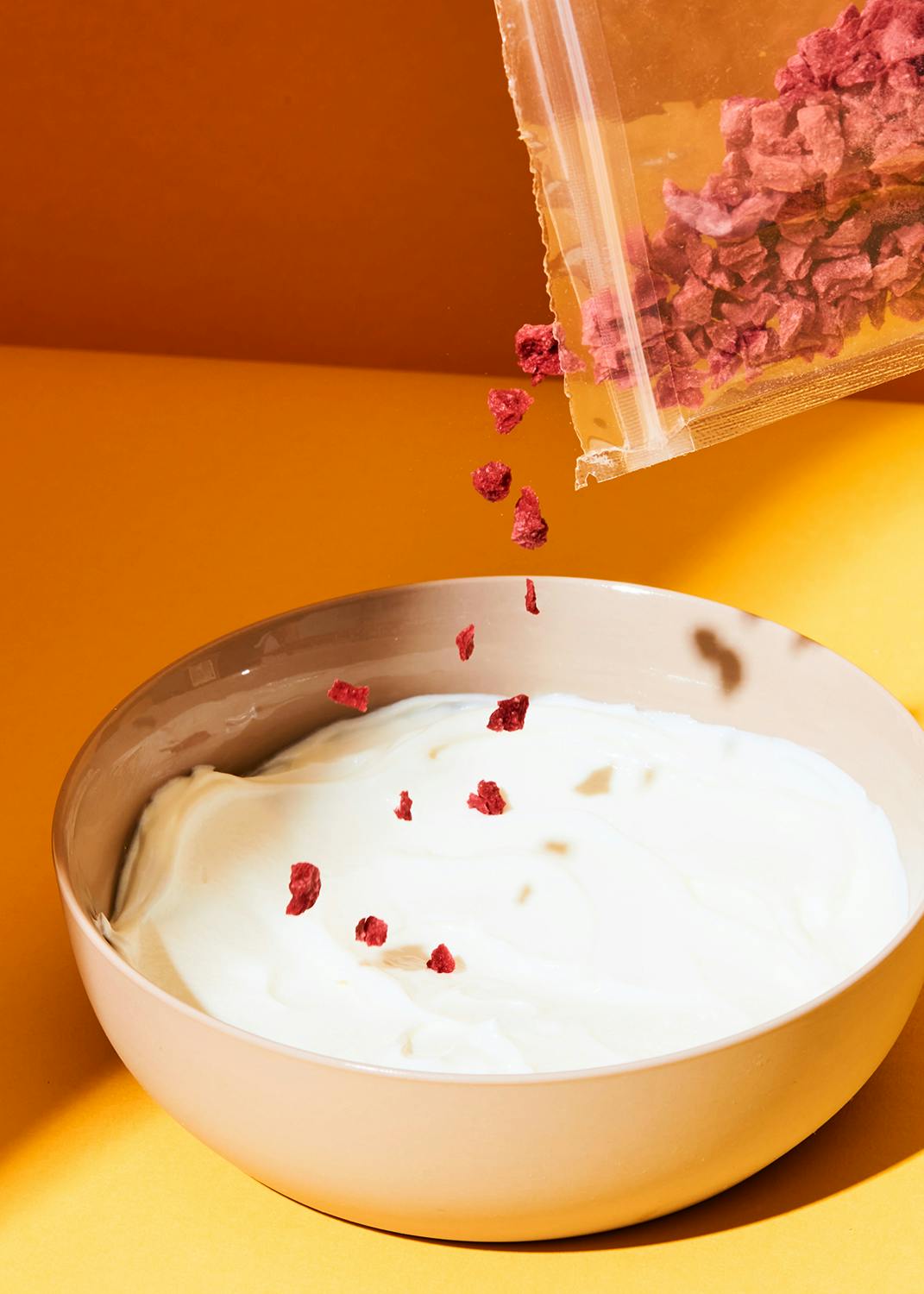
KoRo secret tip for stressed souls
The struggle is real: in stressful everyday life, there is often not much time and, above all, peace and quiet to deal with nutrition. KoRo won't let you down and serves you a power mix on a silver platter: walnut kernel crunch, goji berries, cocoa nibs, soy protein crispies and hulled hemp seeds are a great change from classic trail mix! Simply tear open the 1 kg storage pack and pop it into your cereal bowl - together with oat flakes, (vegan) yogurt and a little fruit. The power mix provides a whole 21 g of protein per 100 g, but above all: 10 g of fiber per 100 g!
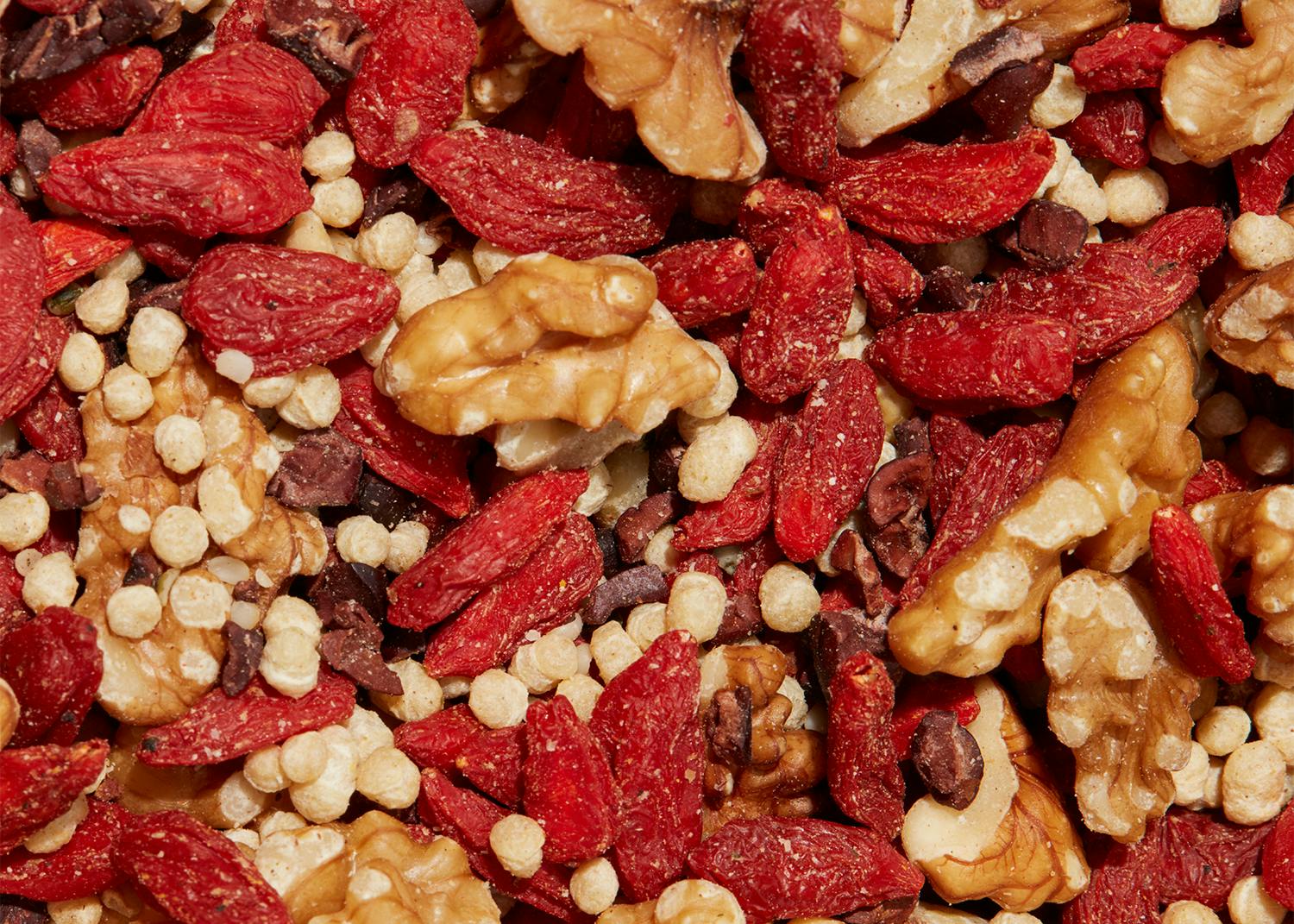
With an overall balanced and varied diet, you can support your gut microbiome and improve your well-being. However, this doesn't mean that you can't enjoy a frozen pizza every now and then. It's more about long-term habits than indulging on the couch on a Sunday evening.
And it's not just diet that plays a role in gut health. Stress and exercise also have an influence. So make sure you plan in breaks wherever possible. Ideally, you should take an occasional walk around the block to reorganize your mind and give your bowels a rest - because they also become sluggish when you sit too much.
